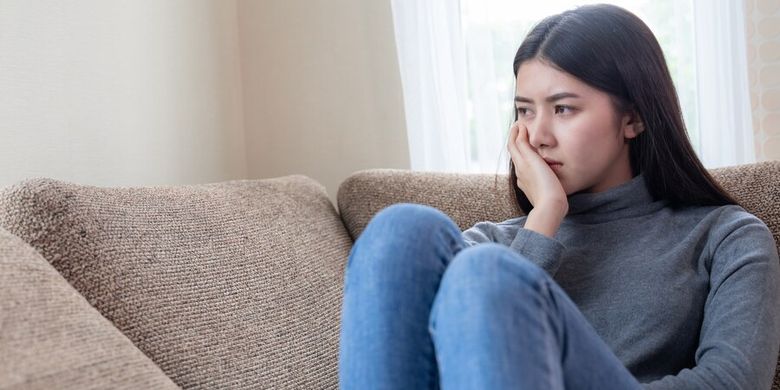Diksia.com - Knowing what post-holiday blues is can be the first step towards a solution.
In short, post-holiday blues are usually felt when someone has had a long vacation, such as the end of the year vacation.
“Post-holiday blues is the sadness we feel after the holiday season ends,” said Boston, US-based psychotherapist Angela Flicken, LICSW, as quoted by Healthline.
Also experienced? Here’s what post-holiday blues is, what its symptoms are, and how to deal with it.
For the record: This article is for reference only. Seek help from a doctor or specialist if you feel that what you are experiencing is affecting your daily activities.
What is post-holiday blues?
Post-holiday blues usually refers to the mental stress, anxiety, and sadness that occurs after the holidays.
Quoted from Very Well Mind: This feeling of sadness is relatively common, especially after experiencing all the excitement of the holidays and having to return to a “normal” situation after a while.
For some people, this experience may only occur for a short time. However, for others, it can cause a persistent feeling of sadness and interfere with daily activities, such as increasing emotions.
In a study titled “The Effect of Christmas on Psychopathology,” researchers initiated a literature study from 1980 to the present that included studies in the United States and several other countries.
They then searched for the terms “Christmas,” “suicide,” “depression,” “psychiatric disorders,” and “self-harm behavior.”
They found a decrease in overall use of emergency psychiatric services and patient admissions, self-harm behavior and attempted or completed suicide during the holidays.
However, it was noted that there was an increase after the Christmas holidays.
Another systematic review of 25 studies conducted in 2022 also found that psychiatric hospitalizations were lower at Christmas and other holidays than at other times of the year.
Also read: Do children have to make New Year’s resolutions? That’s what the experts say
According to Field Trip psychotherapist and author of the New York Times bestseller “The Brain Fog Fix,” Mike Dow said that the post-holiday blues can be triggered by several things, including:
According to Dow, loneliness and a feeling of isolation are the most common triggers.
This is considered reasonable because of epigenetics, or the study of how behavioral and environmental factors influence how genes function without changing DNA.
“Stress from loneliness can ‘turn on’ genes for mental illness, particularly in people with a personal or family history,” Dow said, as quoted by Very Well Mind.
On the other hand, Dow notes that people who spend time with family and friends during the holidays may get a boost in feel-good neurotransmitters like dopamine, serotonin and oxytocin.
As the holiday season comes to an end, these factors disappear and disappointment sets in.
A post shared by Lifestyle (@.lifestyle)
FREEPIK Sad illustration.
Feelings experienced include feelings of emptiness, loneliness, stress, and feeling lost.
Meanwhile, several symptoms can occur. However, these symptoms can vary, lasting a long time in some people and disappearing quickly in others.
Someone suffering from post-holiday blues may experience the following symptoms after the holiday season ends:
Some people may also dream more often and think about problems or things that happened during the previous holiday season.
This condition can worsen feelings of stress, anxiety, or sadness.
It may take some time to recover from sadness after a long vacation. However, there are several ways to make us feel more comfortable, including:
- Other people have had very pleasant experiences with their beloved family during the holidays
- Lonely
- Isolated
- Family problem
- There had been previous mental health problems
- Alcohol abuse or drinking too much during vacation
According to Dow, the most common triggers are loneliness and a feeling of isolation.
This is considered reasonable based on epigenetics or the study of how behavioral and environmental factors influence how genes work without changing DNA.
“Stress from loneliness can “turn on” genes for mental illness, especially in those with a personal or family history,” said Dow, as quoted from Very Well Mind.
On the other hand, Dow notes that people who spend time with family and friends during the holidays may get a boost of feel-good neurotransmitters like dopamine, serotonin, and oxytocin.
When the holiday season ends, these factors disappear and disappointment sets in.
Post holiday blues sign
Some of the feelings felt include feelings of emptiness, loneliness, stress, and feeling lost.
Meanwhile, there are several symptoms that may appear. However, these symptoms can vary, can last a long time in some people and can disappear quickly in others.
Someone who experiences post holiday blues may experience the following symptoms after the holiday season is over:
- Worried
- Not motivated
- Easy to get angry
- Mood changes easily (moody)
- Stress
- Depression
- Insomnia
- Anxious about finances
Some people may also daydream more often, thinking about problems or things that happened in the past holiday season.
This condition can worsen feelings of stress, anxiety or sadness.
Overcoming the post holiday blues
Recovering from sadness after a long holiday may take time. However, there are several efforts that can be made to make us feel more comfortable, including:
- Connect with others: don’t just isolate yourself and focus on social media. Get out and socialize with people physically, especially family and friends. Tell them that you don’t feel okay.
- Self-care: fight the urge to engage in self-defeating activities when you feel sad, such as not exercising, not getting enough sleep, and eating unhealthy foods. Because an unhealthy lifestyle will only worsen your mood.
- Change your mindset: many people may think, the days after a long holiday and returning to routine are terrible. Get rid of those thoughts by changing your mindset. After the end of year holidays, for example, think that even though we may miss the holidays, January is not a bad month and it is important for us to be grateful for having had such a good time during the holidays.
- Finding ways to deal with stress: everyone will have different ways. This can include watching funny movies, practicing meditation and yoga, deep breathing exercises, and more. Seek professional help: If you’re experiencing post holiday blues and the symptoms are interfering with your daily activities, be sure to seek professional support.






